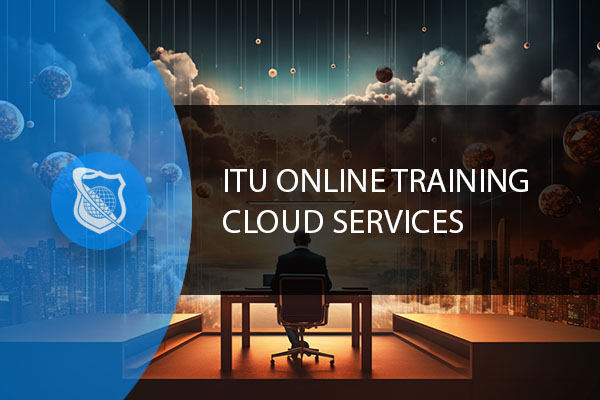Introduction
What is a cloud service provider? Cloud computing has rapidly transformed from a cutting-edge technology into an indispensable component of modern IT systems. Years ago, the cloud was a term familiar only to IT professionals. Today, it’s a household name, and businesses and individuals alike rely on cloud services for everything from data storage to real-time analytics. But despite its widespread adoption, the role of the cloud service provider remains somewhat ambiguous for many. This guide aims to unpack the cloud service provider definition, explore its functionalities, and examine its impact on businesses and consumers. By understanding the nuts and bolts of what a cloud service provider is, you can make better decisions about how to manage your digital assets, take full advantage of cloud provider offerings, and strategically plan for your organization’s future in the ever-changing cloud landscape.
The Evolution of Cloud Computing
A More Detailed History
Cloud computing has a relatively short but incredibly transformative history. The concept is a natural evolution of the more traditional computing methods that dominated the tech landscape in the 90s and early 2000s. Back then, companies had no choice but to set up and maintain their own data centers and servers. The arrival of cloud computing has revolutionized this traditional model, offering a more scalable, flexible, and cost-effective solution. Now, businesses can rent the computing resources they need from a cloud service provider, eliminating the need for costly in-house infrastructure. This paradigm shift has allowed companies of all sizes to be more agile, scaling their operations up or down based on real-time needs. Furthermore, the cloud has democratized access to high-level computing, making these resources available to even the smallest of enterprises.

Get Ahead In Cloud Computing
At ITU, we offer an exclusive Cloud Computing training series designed to prepare you for certification and/or to help you gain knowlege of all Cloud based platforms including AWS, Azure and Gooogle Cloud.
Get access to this exclusive Cloud Computing Training today.
The Growing Role of Cloud Service Providers
The increasing adoption of cloud computing has brought with it the rise of cloud service providers, entities critical in bridging the gap between traditional IT practices and modern cloud-based solutions. These providers offer a multitude of services, including but not limited to, Infrastructure as a Service (IaaS), Software as a Service (SaaS), and Platform as a Service (PaaS). They also offer specialized third-party cloud services, aimed at everything from analytics to cybersecurity.
As the cloud ecosystem has evolved, so too have the offerings of cloud service providers. Initially, many of these providers focused on delivering basic computing power and storage solutions. However, as businesses began to see the cloud as more than just an ‘extra storage closet,’ providers have expanded their services. Today, cloud providers offer highly specialized tools and platforms, such as machine learning algorithms and real-time data analytics, aimed at providing tailored solutions for a variety of industry needs.
Given the ever-growing array of services offered, understanding the cloud service provider definition and functionalities has become more complex but also more rewarding. Companies now have the luxury of choosing a cloud provider that not only offers storage and computing power but also provides specific tools and services that align closely with their business objectives.
What is a Cloud Service Provider: The Definition
Delving Deeper into the Definition
When we talk about the cloud service provider definition, we’re essentially discussing third-party companies that enable individuals and businesses to leverage computing resources via the internet. Unlike traditional in-house computing systems, cloud service providers host these resources on their own or leased data centers, making them accessible remotely. This arrangement allows companies and individuals to forego the overhead costs and responsibilities associated with maintaining their own physical infrastructure.
A Spectrum of Services Offered
While the central idea behind what a cloud service provider is remains constant, the range of services they offer can vary widely. Most offer fundamental services such as Infrastructure as a Service (IaaS), which involves providing virtualized computing resources over the internet. Platform as a Service (PaaS) offers a framework that makes it easier to develop, run, and manage applications. Software as a Service (SaaS) delivers software applications over the web, eliminating the need for end-users to install or maintain them on their personal devices.
In addition to these basic categories, many cloud providers have expanded into offering specialized third-party cloud services. These can range from data analytics tools to cybersecurity measures like firewalls and encryption. Some providers even offer industry-specific services like healthcare compliance solutions or media streaming platforms.
Choosing the Right Cloud Service Provider
Criteria to Consider
Deciding what are cloud providers that best suit your needs is a complex process that involves several considerations. Primarily, you’ll want to assess the scalability of the services. This entails evaluating whether the provider can adapt to your growing (or shrinking) needs, both in terms of storage and computing power.
Cost-effectiveness is another key factor. While cloud services generally offer cost savings over traditional IT methods, prices can vary between providers. Make sure to perform a detailed cost analysis, considering not just upfront costs but also the long-term value offered.
Good customer service is often overlooked but is crucial, especially when dealing with something as complex as cloud services. Timely and effective support can be invaluable, so consider this aspect when evaluating your options.
Finally, compliance with industry-specific regulations should not be ignored. If your business operates in a regulated industry like healthcare or finance, you’ll need to ensure that your cloud service provider complies with the relevant legal requirements, such as HIPAA or GDPR.
By carefully considering these factors and understanding the cloud provider landscape, you can make an informed decision that aligns with your business goals and operational requirements.

Get Ahead In Cloud Computing
At ITU, we offer an exclusive Cloud Computing training series designed to prepare you for certification and/or to help you gain knowlege of all Cloud based platforms including AWS, Azure and Gooogle Cloud.
Get access to this exclusive Cloud Computing Training today.
Evaluating 3rd Party Cloud Services
Assessing Compatibility and Needs
3rd party cloud services have become increasingly popular as companies look for specialized functionalities that go beyond what’s offered in basic cloud service packages. When evaluating these additional services, one of the first aspects to consider is their compatibility with your existing systems. You’ll want to look for solutions that can easily integrate into your current setup without requiring a significant overhaul.
Another crucial point to ponder is whether these third-party offerings meet your specific operational requirements. Whether it’s advanced analytics, specialized security features, or industry-specific tools, ensure the services you’re considering actually add value to your operations.
Importance of User Experience and Performance
While you’re evaluating third-party offerings, don’t overlook the user experience and performance metrics. Slow or clunky services can hamper productivity and cause frustration. Always ask for a trial period to assess the service in a real-world environment to ensure it meets your performance expectations.
The Economic Impact of Using a Cloud Provider
Exploring the Cost Benefits
One of the most attractive benefits of using a cloud provider is the economic advantage it offers. Rather than investing heavily in hardware, software, and the staff to maintain them, businesses can instead rent these computing resources. This not only eliminates significant upfront costs but also allows companies to be more agile, scaling their resources up or down according to their needs. By turning capital expenses into operational expenses, companies can focus on growth and innovation.
Potential Risks and Important Considerations
Despite the many advantages, using a cloud service provider isn’t without its risks. While cloud providers usually offer a range of robust security measures, it’s essential to remember that the responsibility for data protection ultimately lies with you, the user. Always take the time to understand the security protocols the provider has in place and assess whether these measures align with your own compliance and security requirements. Additionally, consider the geographical location of your data, as this can have implications for data sovereignty and compliance.
By understanding these risks and taking proactive steps to mitigate them, you can make the most of what cloud providers have to offer while maintaining a secure and compliant operational environment.
What is Cloud Provider vs. Cloud Service Provider: Clearing the Confusion
Understanding the Subtle Distinction
While the terms “cloud provider” and “cloud service provider” are often used interchangeably, it’s important to note that they aren’t synonymous. A cloud provider is a more general term that can refer to any organization that provides any type of cloud-based service. This can range from cloud storage solutions to networking capabilities. A cloud service provider, on the other hand, focuses more specifically on offering computing resources over the internet, such as servers, storage, and databases.
The difference may seem nuanced, but it’s crucial for businesses to understand this as they navigate their cloud journey. Knowing what each provider offers can help you make more informed decisions when it comes to choosing services that align with your business objectives.
Future Trends: The Changing Landscape of Cloud Service Providers
The Growing Role of Edge Computing
The future of cloud computing is anything but static, and cloud service providers are continually evolving to meet the demands of a rapidly changing technology landscape. One such development that’s gaining traction is edge computing. This approach shifts data processing tasks closer to where the data is generated, usually at the periphery of the network. With the advent of edge computing, the role of cloud service providers is changing, allowing them to offer more localized, low-latency services that can be crucial for applications like Internet of Things (IoT) or real-time analytics.
Leveraging Artificial Intelligence and Machine Learning
Another area where cloud providers are making significant strides is the integration of artificial intelligence (AI) and machine learning technologies. By incorporating these advanced algorithms into their service offerings, cloud service providers are giving businesses the tools they need for more sophisticated analytics, automation, and decision-making processes. This trend is only expected to grow, offering enterprises a wide range of possibilities for optimizing operations, understanding customer behavior, and driving innovation.

Get Ahead In Cloud Computing
At ITU, we offer an exclusive Cloud Computing training series designed to prepare you for certification and/or to help you gain knowlege of all Cloud based platforms including AWS, Azure and Gooogle Cloud.
Get access to this exclusive Cloud Computing Training today.
Conclusion
In the ever-evolving world of IT and data management, understanding what a cloud service provider is has become indispensable. These providers serve as the backbone of modern computing, offering a plethora of services that range from basic infrastructure to complex software solutions. Their impact extends far beyond mere storage or computing capabilities. Through their various offerings, including Infrastructure as a Service (IaaS), Platform as a Service (PaaS), and Software as a Service (SaaS), cloud service providers empower businesses to be more agile, efficient, and focused on innovation rather than maintenance. As we move further into the digital age, it’s crucial for businesses and individuals alike to stay abreast of the latest trends and developments in cloud computing. This knowledge will aid in making informed decisions that optimize operations, reduce costs, and enhance security.
Frequently Asked Questions About What is a Cloud Service Provider
What Exactly is a Cloud Service Provider and Why Do I Need One?
A cloud service provider is a third-party company that offers computing resources like servers, storage, and databases over the internet. The need for such a provider arises when a business or individual wants to leverage cloud computing benefits, such as scalability and cost-effectiveness, without the hassle of managing physical hardware and software.
How Do I Choose the Right Cloud Service Provider for My Needs?
When selecting a cloud service provider, consider factors like scalability, cost, customer service, and compliance with industry-specific regulations. Assess the types of services offered—such as IaaS, PaaS, and SaaS—and how well they align with your operational requirements.
What are 3rd Party Cloud Services and How Do They Work with Cloud Service Providers?
3rd party cloud services are specialized functionalities that extend beyond the basic offerings of a cloud service provider. These services can include advanced analytics, data backup, and security features. They are usually designed to integrate seamlessly with your primary cloud service provider to enhance your existing setup.
What Are the Financial Benefits of Using a Cloud Service Provider?
Utilizing a cloud service provider can lead to significant cost savings. Rather than purchasing and maintaining expensive hardware and software, you can rent these resources. This turns capital expenses into operational expenses, allowing for more financial flexibility and focus on growth.
How Secure is My Data When Using a Cloud Service Provider?
While cloud service providers usually offer robust security measures, the ultimate responsibility for data protection lies with you. Always make sure to understand the security protocols in place and ensure they align with your compliance requirements.
You may also like:
Cloud Hosting Costs : The Hidden Fees You Should Know About
Cloud Architect Certifications : Navigating Your Path Through Cloud Cert Options
Definition of Cloud : A Primer on Cloud Terminology
Cloud Computing Deployment Models: Which One is Right for Your Business?
























